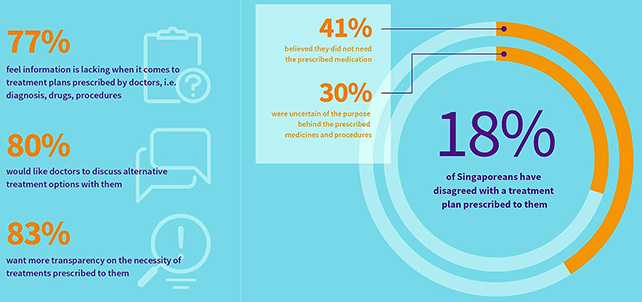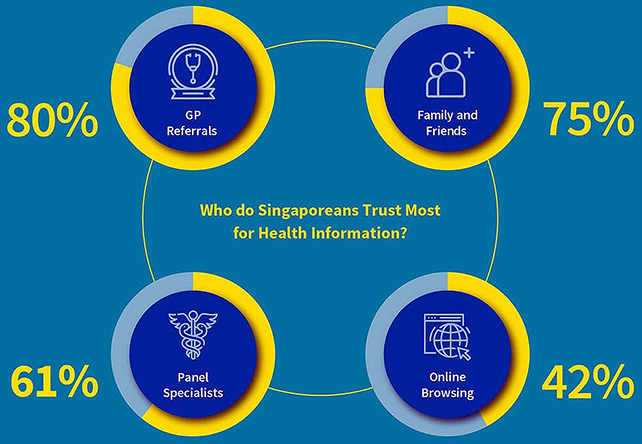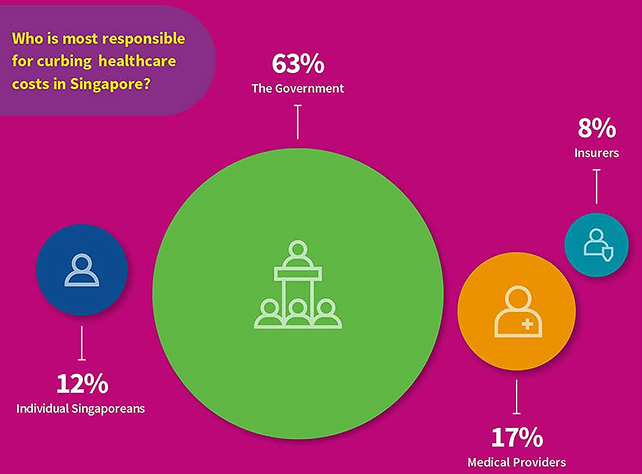A survey on health conducted by Aviva sheds interesting light on local perception of healthcare issues.
This article was first published on
Aviva's Money Banter
blog.
Singapore’s healthcare system has consistently demonstrated its efficiency, particularly during the current COVID-19 pandemic.
However, there’s always room for improvement, especially as consumer needs constantly evolve. Aviva’s recent health survey revealed some interesting findings related to Singaporeans’ personal habits, perceptions and attitudes towards healthcare services, as well as how they’re making healthcare decisions, and where they’re getting their health information from.
Here are some key insights that could help nudge us in the right direction towards an even better healthcare experience.

While Singaporeans are generally content with healthcare services provided by professionals, the survey has shown a strong demand for more education and information when it comes to making decisions about personal health.
Respondents believe having a clearer picture on diagnosis and prescribed treatments or medications can help to enhance their overall healthcare experience. In fact, 77% of respondents often feel the information is lacking when it comes to treatment plans prescribed by doctors. As a result, 83% would like more detailed explanations and a better understanding of the necessity of treatment plans prescribed.
This need is as prevalent in younger Singaporeans, who show a greater interest in their personal health, as it is in older generations who may be facing increasing health concerns with age.

You are a trusted source for health information for those around you
The issue of fake news has been a rising concern worldwide. Locally, we’re no strangers to the spread of falsehoods especially on social platforms, and if inaccurate, news related to health can have potentially detrimental consequences.
According to the survey, Singaporeans place the highest trust in GP referrals (80%) for health information, followed closely by their family and friends (75%). This reinforces the importance of equipping the public with sufficient and accurate health information so that they can be reliable sources for those around them.
Individual responsibility matters
A recent Mercer Marsh Benefits 2019 Medical Trends Around the World report showed Singapore’s medical cost inflation rose 10% in 2018, and it’s expected to continue to rise in the coming years.
While this issue has been on the radar of the government and insurers, we need to be aware that every stakeholder, including the individual, has an equal part to play in keeping healthcare costs affordable. However, the survey showed that only a minority of Singaporeans share this view (12%) with most believing that the responsibility lies with the government (63%).

The need for more healthcare education is also evident in the disparity of knowledge on healthcare benefits policyholders are entitled to – and this is also part of the solution to slowing rising costs.
For instance, nearly half (46%) of respondents are unaware their Integrated Shield Plan offers a panel of medical specialists they can use. Besides priority access to specialist appointments, policyholders also enjoy preferred outpatient consultation rates when they visit panel specialists, helping to reduce the incidence of overcharging and alleviating overall healthcare costs.
Let’s do our part in this fight against rising healthcare costs.
*Aviva’s health study is an analysis of 1,000 responses about Singaporeans’ personal habits, perceptions and attitudes towards healthcare services, as well as how they are making healthcare decisions, and where they are getting their health information from. The survey was conducted from 9 January to 10 January 2020.
Click
here for the original article. Reproduced with permission.
